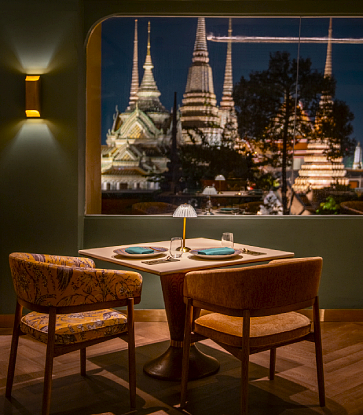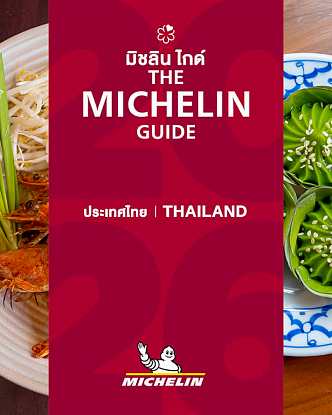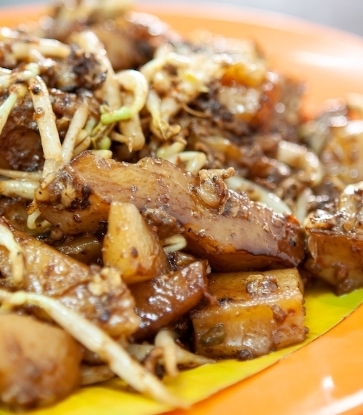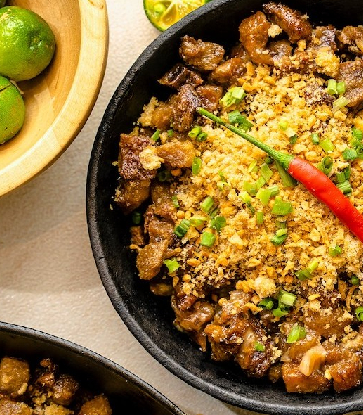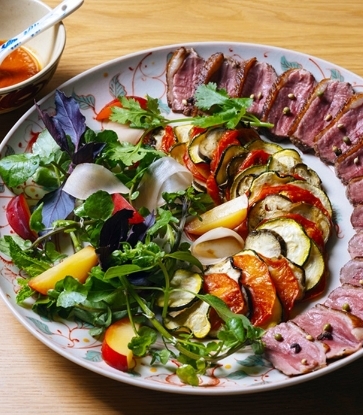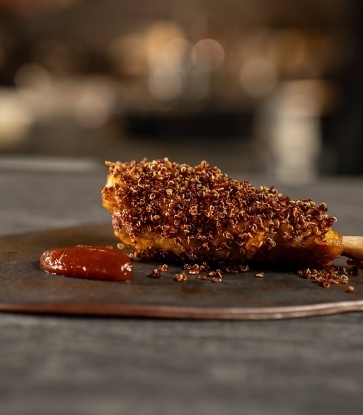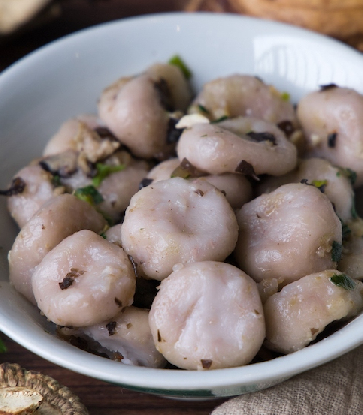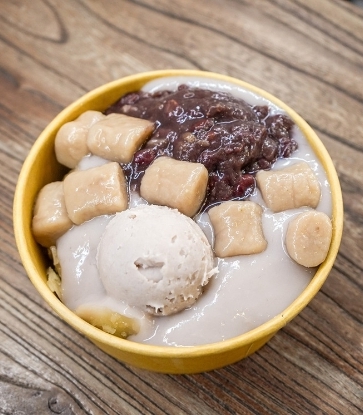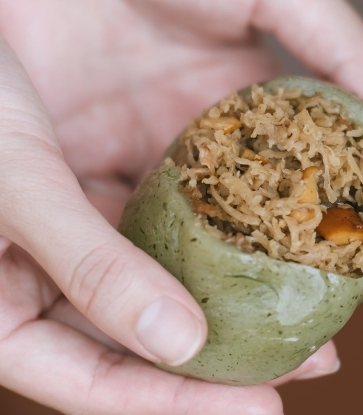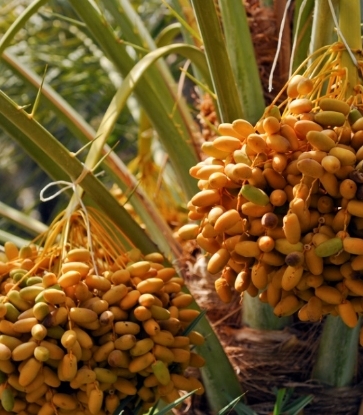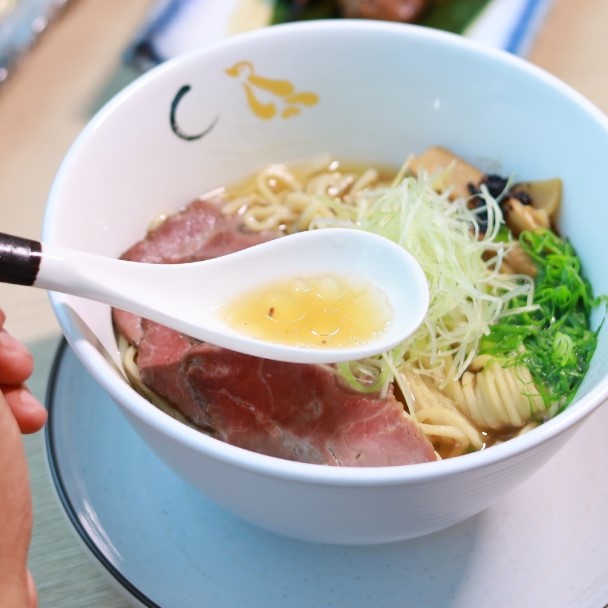The MICHELIN Green Star aims to shine a light on culinary innovators and leaders who put sustainable gastronomy at the forefront of their philosophy. This distinction recognises those pushing the boundaries and overcoming the obstacles along their path to promote sustainability. It’s no surprise that newly awarded Bib Gourmand and MICHELIN Green Star recipient, Teible, earns its recognition in doing just that.
Under the guidance of executive chef Carlos Frunze De Garza, this sustainable eatery provides its guests with dishes celebrating local ingredients and zero-food wastage. His goal, along with restaurant owner, Peter Ahn, is to create a unique, interesting and local experience that tackles circular gastronomy from the kitchen to the front of house.
While De Garza’s ultimate mission to grow a sustainable establishment is clear and straightforward, his path to accomplishing it has been no easy feat. In this article, De Garza shares the challenges that moulded his culinary journey, his success and how he navigates sustainability in Dubai.
A third culture kid, De Garza’s background represents the melting pot that is Dubai. He is of Russian-Mexican origin, grew up in Dubai and travelled quite often to visit his grandparents in Argentina and Russia. De Garza’s multicultural upbringing gave him the opportunity to be exposed to so many diverse destinations and new gastronomic scenes; a fond memory he recalls is the time he travelled to Tokyo with his grandfather. "When I was 13 years old, it was the first time I tried sushi. It was in Tokyo, and since that moment, I knew needed to travel around the world and try the food and discover people’s cultures."
Although his love for food exploration started at a young age, De Garza’s path to becoming a chef was not the traditional one you would expect. He initially pursued a career in the military; however, a serious accident gravely injured his brain and spine, leaving him without the ability to walk for eight months, and forcing De Garza to pivot professionally. This was a life-changing moment in more ways than one.
“The doctor told me that 10% of people who have an accident to the left lobe discover something new about themselves. They can either speak different languages, or they can smell better, but for me, it gave me a hyper taste I never had before.”
He gained a skill that gave him the opportunity to start over and thus began his culinary journey. After being inspired to become a chef by his maternal grandfather, De Garza earned his degrees in hospitality and culinology in Malaysia and climbed the ranks in MICHELIN restaurants. Starting as a trainee at chef Thomas Keller’s three-MICHELIN-star and one MICHELIN Green Star restaurant, French Laundry, in Napa Valley to earning the spot as Head Chef of Plateau in Canary Wharf, a former one-MICHELIN-star restaurant that closed its doors during the COVID-19 pandemic.
De Garza enjoyed working within the MICHELIN restaurants at the time yet noticed that kitchens were not taking food waste seriously. “Sustainability was not a big thing,” he recalls, “I saw how many things we threw out, even though some of it was used for staff meals and was used for compost, but a lot of things were still being thrown away and I kept thinking of how you can actually do a lot with them.”
With that in mind, De Garza’s new perspective on how the restaurant industry should look like blossomed. A perspective that found its way to Dubai in 2020, wherePeter Ahn had the idea to open a sustainable, zero waste restaurant that uses local ingredients and wanted De Garza alongside him. With a year’s worth of research under their belt, the pair opened Teible but with a step-by-step mentality and through four foundational pillars: sustainability, seasonality, simplicity and locality.
“When we first opened, we were at 50% to 60% zero wastage, but then after six months became 100% zero wastage in the kitchen, then we wanted to even make the front of the house be zero waste as well, because we shared the same goal to be sustainable."
Serving up a seasonal menu, Teible’s diners can expect diverse dishes with every visit. Beautiful and creative plates celebrate the local and seasonal ingredients Dubai has to offer, while the minimalistic Nordic-inspired interiors uses repurposed materials sourced from landfills and dispels any use of plastic throughout the establishment, completing the restaurant’s sustainable philosophy.
Some of the greener practices De Garza implements in his kitchen are focused around food waste, such as using onion peelings to make seasoning powders, using parsley stems in salsas, and buying their products such as seafood and dairy from local farms to support local communities. He also aims to reduce their frying oil usage and opts for Indonesian charcoal instead of Japanese as a way to minimize their CO2 emissions. These initiatives, however, do not come without their challenges.
“It was very difficult at first to find the local suppliers, but now there are many other challenges that we’re facing every day when it comes to just running a sustainable restaurant. For example, I work with a supplier in Sharjah to provide us with baby gem lettuce, but because of a sandstorm, all the crops in the greenhouse were destroyed, so we had to change the vegetable on the menu and apologize to guests.”

Despite the challenges, De Garza still advises those that wish to have a more sustainable restaurant to source their products and ingredients locally. “Just buy local. Support the local government, support the local agriculture,” he encourages, “there's a lot of things over here and I see a lot of restaurants trying to do that and I'm really proud of that, to be honest.”
Regardless of the hardships chef De Garza faced from a professional and personal level, his determination to make Teible the unique, local and interesting restaurant is unwavering. “We want to work together to get the MICHELIN Star, change our style of cuisine and push more on sustainability.”







